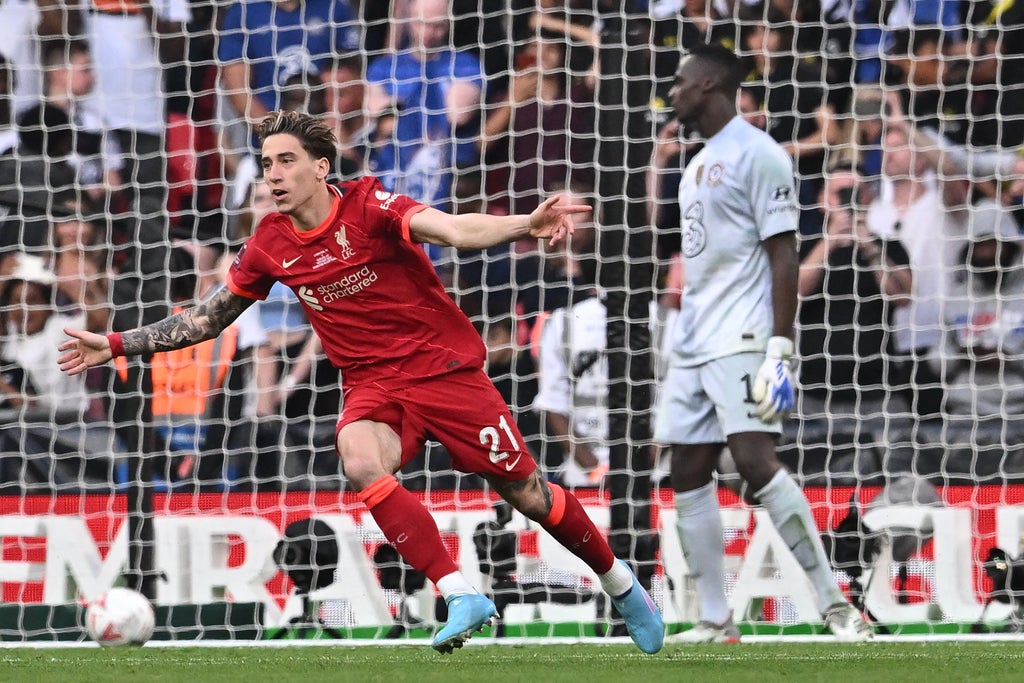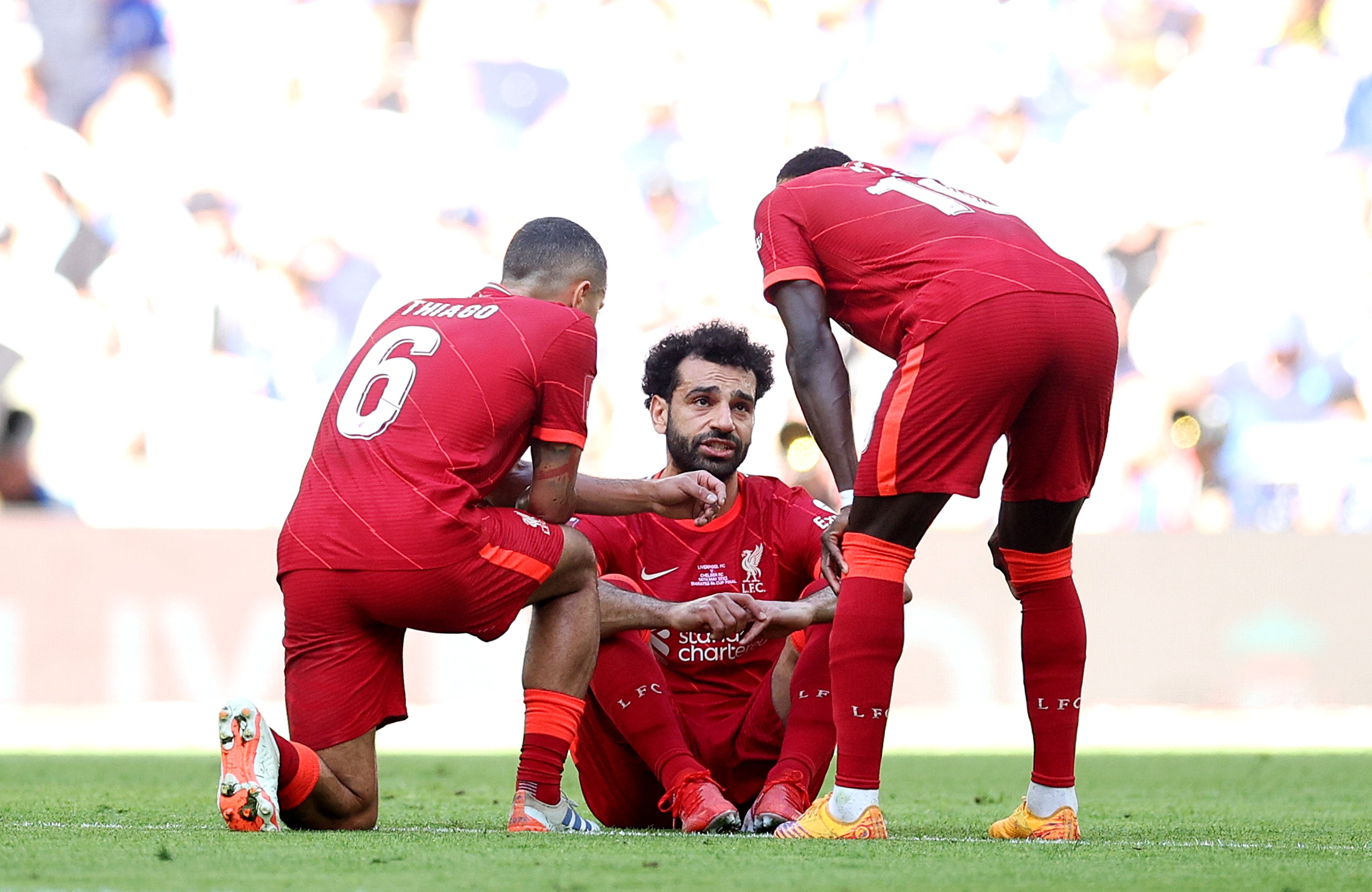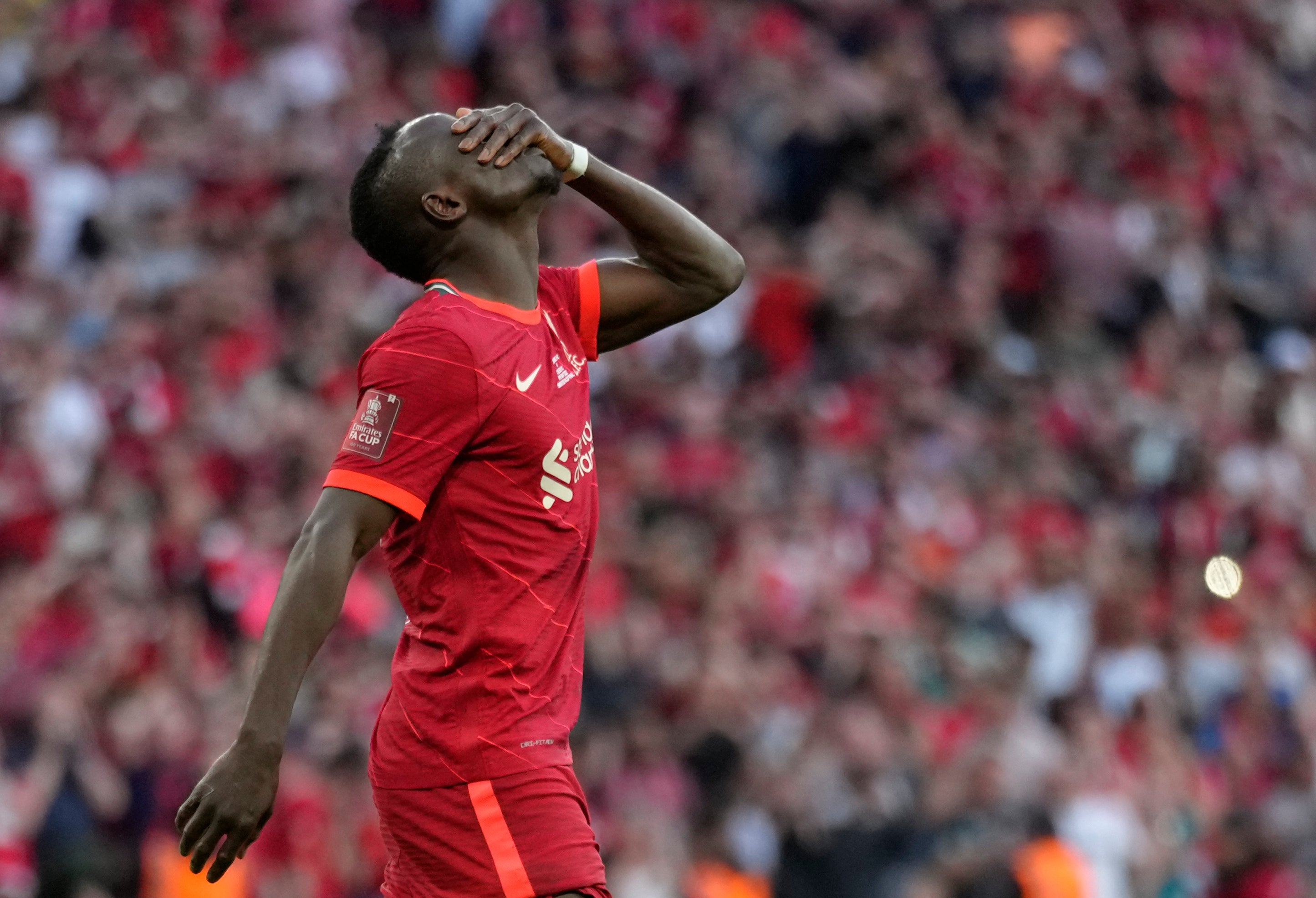
The echoes of the past had been unwanted until, at the last, there was a welcome nod to history. Liverpool can savour the sight of a left-back deciding a penalty shootout.
Alan Kennedy won the 1984 European Cup in that way and, 38 years on, Kostas Tsimikas secured the FA Cup in similarly nerveless style. Kennedy’s place in Anfield folklore was already secure before he finished off Roma. The unglamorous figure for the big occasion had scored the only goal of the 1981 European Cup final to beat Real Madrid.
Others at Liverpool have less fond memories of Real. As Liverpool head for a reunion in Paris, there was an unwanted action replay of their last final meeting. For the 2018 Champions League, read the 2022 FA Cup. Scarcely more than half an hour into a final and Mohamed Salah’s game was over. This time, there was no sign of Sergio Ramos. There was nothing as dramatic, nothing as malevolent. There was no-one to blame. This time Salah got the right colour medal. But once again, it opened up the possibility the Champions League will be decided in his absence.
If the injury seemed more mundane – a suspected muscular problem – the context is different. Then he left the field against Real in tears. This time an early exit may have been precautionary, an attempt to ensure he is fit to face Real in two weeks’ time. Perhaps the Champions League final will afford another glimpse of Salah. Or perhaps what had shaped up as one of the great individual campaigns in Liverpool’s history has reached an anti-climactic end, with a goal drought and a hobble off the pitch. At least he got a second trophy of the season.
The Liverpool fans who had been vocal – rather too much for those who objected to the boos during Abide With Me and the national anthem – felt silent at the sight of a grounded talisman. Only their Chelsea counterparts were audible. Salah had spoken to Jurgen Klopp a couple of minutes earlier when Alisson received treatment. Maybe Salah’s time on the turf near the halfway line was caused less by pain than the practical requirement to give Diogo Jota a few moments to get ready.
He initially went to take his seat among the substitutes, but ushered down the tunnel. The need for treatment took precedent over the moral support of his team-mates. Perhaps he simply does not know what to do when hurt. It is something that happens to other footballers. One of Salah’s greatest abilities is his durability. He has not missed a Liverpool match because of injury since 2019. In both 2018-19 and 2020-21, no one made more appearances for them.

But finals can have a cruelty for Salah. He was denied his crowning glory in the African Cup of Nations showpiece in February, held back to take a fifth penalty that never happened as Senegal instead triumphed. His goals can be spectacular as well as plentiful, and as a total of five against Manchester United this season indicates, they are not all confined to the small occasions, but they rarely come in finals.
They have rarely come recently, either. The statistics have tended to flow for Salah this season. They have become less flattering of late. This was a seventh consecutive game without a goal, taking his recent return to just three in 18 matches. It was only a third of a game but the danger is a man who set himself an ambitious target of 40 goals end his campaign stuck on 30 and that, if he is sidelined, Son Heung-min could have a free run at the Golden Boot. Salah is sufficiently selfish that such things matter to him.
He is not alone in suddenly finding goals elusive. Jota ghosted into space but volleyed over; he drove a shot past the right post but his barren spell now extends to 10 games. It is a time when Luis Diaz has definitively displaced him from Klopp’s strongest team. The Colombian was the reason why Jota, who rarely plays on the right, came on in a straight swap for Salah. Diaz had terrorised Trevoh Chalobah at the start, his scorched-earth policy burning up the Wembley turf as he surged past a relative rookie three times in the first eight minutes. Klopp was understandably reluctant to move him. But it meant Liverpool had a front three where, with Sadio Mane in the middle, perhaps the least suitable for the berth on the right occupied it. If players of Salah’s standard can look irreplaceable, Liverpool may have missed him again when Mane could not convert his penalty: the Egyptian likes to go fifth in a shootout.

But Mane had offered evidence of his footballing intelligence, dropping deep, turning supplier, but Diaz brought the drive. He has assumed Salah’s status as the focal point of hopes and dreams. He offers the sense something can happen whenever he gets the ball, that feeling he is force of nature as much as footballer. He clipped the post and curled a shot just wide. He had an eighth-minute effort cleared off the line.
Salah was voted Footballer of the Year but Diaz was named man of the match. When he was substituted, Reece James gave Diaz a high five, a gesture of respect to Liverpool’s relentless warrior. He had backed up an outstanding performance in the Carabao Cup final with another in the FA Cup final. Liverpool scored in neither. It was a reminder that, for all Diaz’s brilliance, Salah’s most extraordinary quality is his prolific trait.
By extra time, Liverpool were without their top goalscorer, in him, their premier defensive midfielder, after Fabinho was injured on Tuesday, and their outstanding centre-back, with Virgil van Dijk withdrawn. Klopp must hope the spine of their side can face Real. But they do so with two trophies in the bank and with Tsimikas offering his best impression of Kennedy.







